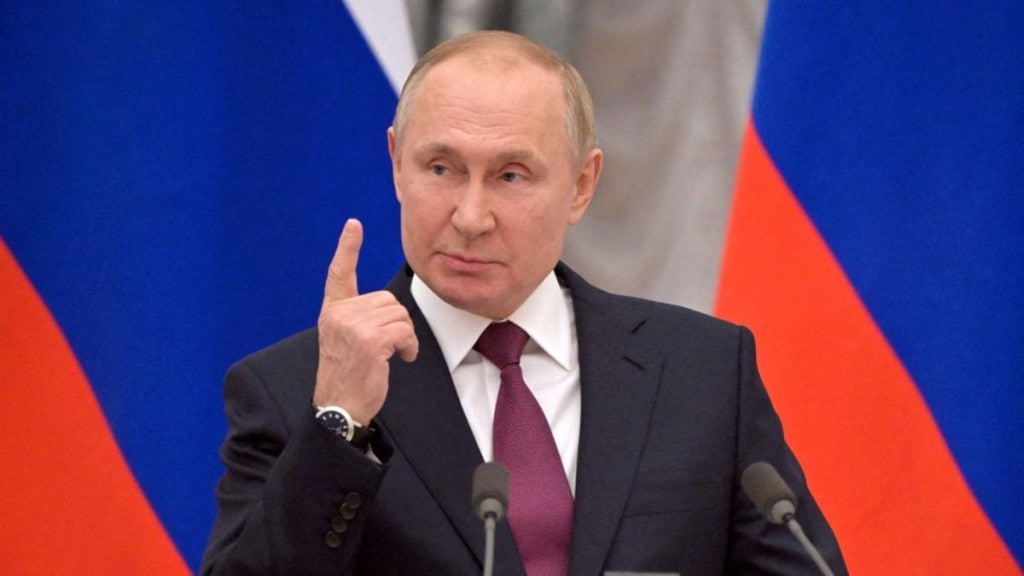By Kunal Kumar
One year into the Russia-Ukraine crisis, the world remains fixated on critiquing Vladimir Putin’s leadership style through the lens of Western values and experiences. Terms such as “Machiavellian,” “narcissistic,” and “authoritarian” are frequently used to describe Putin’s approach. However, we must delve beyond mere labels to truly grasp Putin’s leadership. It is crucial to recognize that Russia’s leadership style is deeply ingrained in its history, culture, and geography, extending far beyond the ambitions of any single leader.
The Socio-Historical Context of Russian Leadership
The Russian way of leadership has always been dominated by military prowess, a legacy that spans the reigns of Peter, Catherine, Czar Nicholas, and even Putin. With its vast expanse and historical vulnerabilities to encroachments and subjugation by outside powers like the Tatars and the Mongols (famously known as the Golden Horde), Russia has a long-standing desire for strong, military-like leadership. This longing for a guardian of Russian territories, providing security and stability, is deeply rooted in history. A glimpse of this leadership style is evident in Putin’s tenure, where the memory of the Great Patriotic War is kept alive and nurtured through historical accounts and celebrations.
In contrast to civilizational states like India and China, Russia lacks a prehistoric, prosperous ancient history. Therefore, Russian leaders and people often reference modern Russian leaders and historical accounts to justify their current actions. Putin, for instance, frequently invokes the Great Patriotic War to justify his military endeavours.
The Russian Style of Leadership
Traditionally, Russian leadership has been characterized by a strong-man personality willing to undertake extraordinary measures for the greater good. This attribute continues to dominate the Russian psyche, shaping their expectations of leaders, including Putin. Russian leaders are expected to mobilize their people for sacrifice to achieve grandeur, whether it be Peter the Great’s modernization efforts, Lenin’s revolutionary mobilization against the Czar, or Putin’s actions like the annexation of Crimea and the special military operation in Ukraine. The ability to inspire such sacrifice instils a sense of security and stability among Russians.
Moreover, Russians expect their leaders to evoke awe and admiration, a heroic dimension of leadership that has persisted throughout history. This tendency endured whether it was Peter the Great, Catherine the Great, Lenin, or Stalin. Putin is the natural successor to this tradition. His actions, such as annexing Crimea in 2014, hosting the lavish FIFA World Cup in 2018, or launching military campaigns in Ukraine in 2022, have consistently aimed to generate moments of awe in the minds of ordinary Russians. This generates unwavering support for Putin, often incomprehensible to outsiders.
The Grand Failure of External Models
Another reason behind Russia’s reluctance to embrace external models or institutions of governance is its historical experience with their application. Whether it was the Europeanization efforts under Peter, Lenin’s adoption of the communist model, or Gorbachev’s introduction of Perestroika and Glasnost, Russia has endured periods of socio-political instability following attempts at external adaptation. These historical incidents have convinced Russians of the unsuitability of foreign models for addressing internal challenges. Hence, while the world adopts democratic institutions and leadership styles, Russia retains faith in its model of sovereign democracy and unique leadership style.
Implications for the World
The world must understand that a change in Russia’s leadership style cannot be forced through external pressure or judgment. Instead, it requires significant shifts in how the Russian majority perceives the world and their leadership. Such transformation will be gradual, whether under Putin’s leadership or any future leader. Consequently, Russia should not be measured against Western benchmarks. The sooner the world, especially the West, acknowledges the reality of Russian leadership and adjusts their policies accordingly, the better equipped they will be to address the current crisis. Putin’s leadership is not merely a product of personal ambition; it is deeply intertwined with Russia’s complex history.
In conclusion, the debate over Putin’s leadership should extend beyond Western stereotypes and criticisms. It should encompass a nuanced understanding of Russia’s historical context, cultural values, and the expectations of its people. Only then can the world begin to navigate the intricacies of Russian leadership and engage constructively in addressing global challenges.
The author is Doctoral Research Scholar, Centre for Russian and Central Asian Studies, JNU, New Delhi.
Disclaimer: Views expressed are personal and do not reflect the official position or policy of Financial Express Online. Reproducing this content without permission is prohibited.

